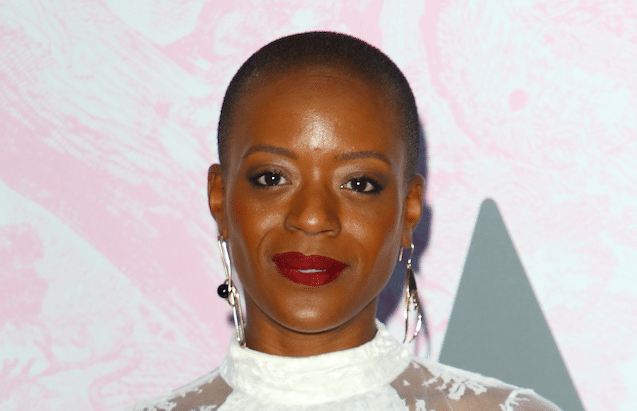Haunting of Bly Manor star T’Nia Miller came out as queer after her ‘a**ehole’ husband prompted a stark realisation

T’Nia Miller at the Victoria and Albert Museum Summer Party in 2019 (Keith Mayhew/SOPA/Getty)
T’Nia Miller kept her sexuality hidden until her early 20s, but now that she’s out she’s determined to be seen.
The east-London born actor played the ethereal housekeeper Hannah Grose in Netflix’s The Haunting of Bly Manor, a show whose central lesbian love story instantly won a strong queer fandom.
Miller saw nothing like it when she was growing up. As a child she had “no exposure, no knowledge, nada” when it came to LGBT+ issues, let alone her own sexuality.
“I’d never seen a queer person on TV and I didn’t know any queer people at all until I got to college,” she revealed in an interview with the Guardian.
“I used to travel from the East End to go to college in Notting Hill and that’s where I met my first queer family, as it were; people who were a little bit different than the social circle I was used to mixing with. My God, it was refreshing.”
Miller has a Jamaican heritage and loved listening to reggae and bashment, two genres not known for their tolerance of LGBT+ people – and she certainly felt the sting.
“That scene, at the time, didn’t support me being queer. Although such views weren’t present in my family, in the wider society there was a shame shrouded on it, so I sort of denied it and pushed it back,” she said.
Ultimately, she ended up marrying a man and having children, “but by the time he started being an arsehole I realised: I have two kids, I’m a little older and I don’t give a s**t about social pressure, so I’m going to start dating women. It was really that simple”.
T’Nia Miller rarely spoke about her private life in the past, but recently became more vocal about her queer identity so that others feel seen.
It’s why she’s taking part in the Younger Me campaign from the LGBT+ youth organisation Just Like Us, which asks how LGBT+ inclusive education would have helped older queer people when they were in school.
“With my ‘coming out story’, I was very much supported by my family, but there are many children that aren’t,” Miller admits.
“I know as a Black actor what it meant to see people like me on the screen, and I think that’s exactly the same when it comes to sexuality and how we identify.
“That’s why Just Like Us is so important. It helps forge those intergenerational connections.”

